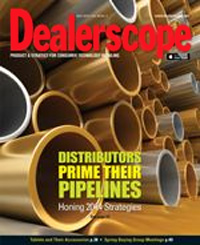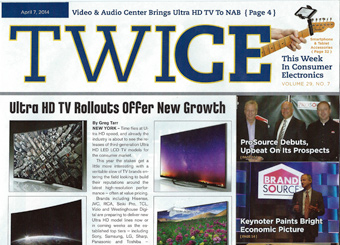Podcasts
Q4Q 1 What is Q4Q?
This first podcast is really an introduction into how this business, Q4Q, started and a synopsis of my four main presentations. It is an overview of the work that I have done over the last 43 years and gives you some ideas about the depth and breadth of my work.
I started my career with General Electric, a Fortune 8 corporation, GE provided me with a great start to my career. I moved on to Whirlpool Corporation, the largest manufacturer of appliances in the world and spent 35 years learning and teaching leadership. My career path led to my promotion to the National Director of Sales, responsible for the entire sales team across the United States. During this time I was able to visit and get to know the CEO’s, Presidents, GM’s and others who were leaders of their companies. It served as a base of what I now talk about on the speaker’s circuit.
This podcast will give you an economist’s look at the causes of the 2008 recession in America. Tim and I discuss the events that led up to the crisis beginning with the speech President Bush made on September 23, 2008 where he warned the American people of the dysfunction in the economy at the time and made some dire predictions that unfortunately a number of them came to pass.
Major global corporations like Lehman Brothers failed, others like Merrill Lynch, an equities icon, was sold to Bank of America and thousands of other companies went bankrupt. We watched as consumer confidence plunged to the lowest levels since we started measuring it. Consumer Spending likewise became that last thing that Americans wanted to do and sales of nearly everything began to decline at levels not seen since the Great Depression.
There is no doubt that we were in trouble and indeed by March of 2009 the stock exchanges all reached historic lows and unemployment in November of that year was over 10%. But there was hope on the horizon and I will explore the subtle changes that occurred and those that are still affecting our recovery.
This podcast contains some interesting observations about our economy and the differences between how some news programs cover economic news versus how an economist views national issues.
Tim asks some pointed questions that are on the minds of many people but never really get covered by TV anchors. In this 12 minute segment I talk about America’s leading economic indicators in a way that will give you insight into our current issues with GDP, the gains we have made with the levels of debt taken on by Americans prior to 2008 and the growth in employment over the past seven years.
Then we jump into some very sensitive issues that I believe will confound those who don’t have a background in historical realities that are facing us today. You will learn about the national debt, unemployment versus “real unemployment” and the reasons why China and others buy U.S. debt. You may not agree with my assessment but you will have something to thinks about.
One of the realities that I face in this type of work, projecting the year ahead for our economy or looking out with a longer term view, is that every year the gloom and doom writer’s publish hundreds of books a year predicting calamity for our economy. If you read books or watch the hourly grind of news programs you have seen the daily pass through of hedge fund managers, economists and the financial news shows that give a forum to those “experts” who have been very explicit in their prognosis for America, and that is our entire economy is going to collapse. Of course they have been saying this since 2009 with some of the most outlandish opinions that do not deserve to be on a television show or in a book.
You might wonder why this happens. Think about it this way, if you write 10 books in 10 years about the annihilation of the American economy and you get it right one time, you become a guru in this space, sell millions of books and are interviewed on every show for the next 5 years. Fear sells but it does not help you run a business or make very wise investment decisions.
In this podcast I explore the fall of China, the changing landscape in manufacturing, the explosion of oil production and the future impact of these forces on our country. I even predict the 2015 stock market correction that occurred in August of 2015. Take some time to listen to my ideas and I think you will come away with a different view of our future.
In the past, after I would speak at conventions about the year ahead for our economy, I would always get people who would come up after my presentation and ask me about the next ten years. Most economists don’t like to look out that far because economic predictions are vulnerable to so many different forces, it is hard enough to predict the next quarter let alone a decade. But because I got the requests I began giving my audiences a longer look at what might happen.
So this podcast deals with the next 120 months and the possible impact of the rapidly advancing new technologies that are coming on scene in a big way over the next 10 years.
If you don’t live in the tech world, I think you will find this interview with Tim enlightening. Technology will add trillions of dollars of GDP to global economies and it has the capacity to swamp other sectors of our economy. In addition, because American companies are world leaders, we should see greater growth than other nations. This talk is more about our economy that it is about technology but you will better understand what is coming in the very near future.
I began my education in leading an organization in 1987 when I became the Regional Director for the Whirlpool Corporation responsible for the Western half of the United States. This job was the basis on which I learned what it takes to become a great leader. I began the process of applying my new experiences to real world situations with my sales team.
Leadership is not about getting people to follow your lead, a common misconception, it is about creating leaders in your organization who can make good business decisions and turn in strong results. It is about getting your employees to believe in themselves and reward those who are willing to take initiative and not wait to be told what to do.
I discuss the importance of communication in this section and why great leaders are both good speakers and great listeners. There are many ways to work on your leadership skills and I am going to pass on the ideas that I have been teaching to my teams over the past 40 years.
Every time I look up the characteristics of great leaders, the power of a positive mental attitude is usually in the first tier. There is no doubt that positive leaders have the capability to bring up an entire organization and conversely a negative individual can bring down a company.
Great leaders make the choice to be in a good mood, to find solutions to problems and not place blame, they motivate employees and inspire those around them and they work to help others become the best leaders possible.
In this podcast you will learn the difference between personal power and position power. I talk about overcoming fears and ways that you can make a weakness, that you have carried all of your life, into a strength. We all have the ability to make everyday a great day by taking that next step and deciding that we are going to make a difference in the world through our attitude.
I approach integrity with a different attitude than I do all the other characteristics of leadership because it is what defines us as people. It really is, as they say, the most important thing we do in our lives. At Whirlpool we were taught this maxim, “There is no right way to do a wrong thing.” And for all the years I worked at Whirlpool the employees and the leadership lived these words.
Think about it this way, there are two parts to all of us, what we want to be and who we want to be. The what we want to be is defined by a title we have, like mother, father, doctor or engineer and while these titles are important to us, nobody else cares. People care about who you are, how you treat them, how inspire and motivate them and how you make them want to be better people. When you get home at night you can’t pull out the “I am a CEO” card, your wife doesn’t care about it and your kids don’t either, they only care about how you treat them. For leaders the same principle applies, this is what defines integrity, it is about your honesty and your empathy and your decency as a human being. Leaders can never stand silent if the face of corruption or dishonesty, they must remain absolute in times of crisis.
When you reach a leadership position in anything you do, it normally means you have a team involved, whether it is sports, work or a charitable organization, if you want to become a leader you need to learn how to motivate and inspire a team. Leaders do not become successful on their own, they only win if the entire team raises the bar of performance and takes the leader with them to the next level. I learned early on in my career that the further I moved up in the organization the more dependent I became on my team for my own success in life.
You will find that the skill set you acquire in business around leadership and building great teams will bleed into your personal life because family and friends have many of the characteristics of running a team. You will be a better father, mother, son or daughter, a better mentor or friend. These skills can improve just about every aspect of your life as it applies to functioning in the world.
In this podcast you will learn how to take the next steps in your caret and how to go about building a team that in the long run will create higher levels of success in your life.
The Harvard Business Review talks about empathy as one of the characteristics of a great leader. Research suggests that the ability to connect quickly and emotionally with other people is one of the hallmarks of strong leadership. Let’s face it, we would all like to work for an organization and a manager that values our contribution to a company and one that is willing to help us when tragedy might strike.
Empathy is a unique talent that leaders possess in abundance and allows them to treat people with care and compassion. This is one of the issues often mentioned by employees who leave a company after consequential life event when the company or leader shows a void in compassion.
Great leaders care about people, customers, friends, family and they make others feel like they are important to whatever enterprise they are managing. Never be afraid to show compassion and concern in any circumstance. I have watched over the years as CEO’s of companies have cried on stage while talking about the death of an employee or a natural disaster and I am sure that most of my readers can remember an empathic person becoming emotional at a public event. It is very powerful and it creates a bond in a company that compels employees to want to work hard and succeed.
The title of this Podcast is Creating a High Performance Culture and people always ask me what that is, my answer is simple, it is one that exceeds expectation. Let’s face it, every country you visit and every business worldwide has a culture that is unique and distinct. It is what allowed humans to survive and thrive as a part of our evolutionary past.
It doesn’t matter where you go, your church has a culture, so does your bank and your gym, each one different than others in your community.
Businesses need to make sure that they cultivate their cultures and create a vision and mission statement so that their employees understand the expectations of their leaders.
Culture is the deepest held reflection that you have about business, it is your beliefs, commitments, ideals, dreams and everything else you want to achieve in your enterprise. I tell CEO’s, Presidents, GM’s and all those who run a business, don’t keep these things a secret, be explicit so that your teams have mission clarity.
You will learn in this podcast how to make this a reality in your operation. I will give you examples of what other successful companies have done to promote their culture through a vision that will drive behavior.




